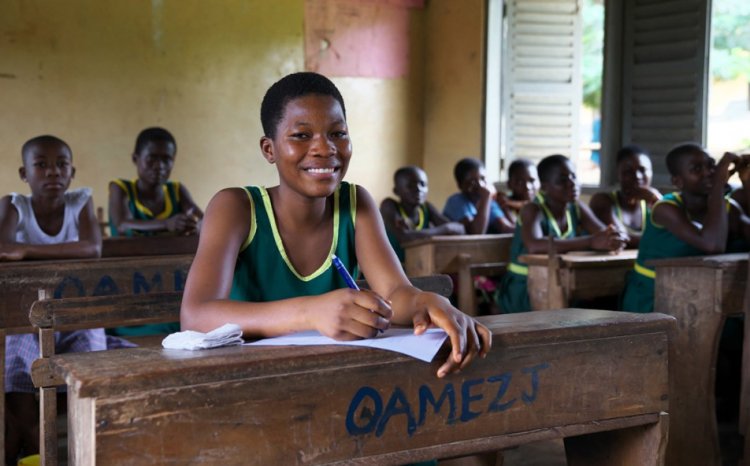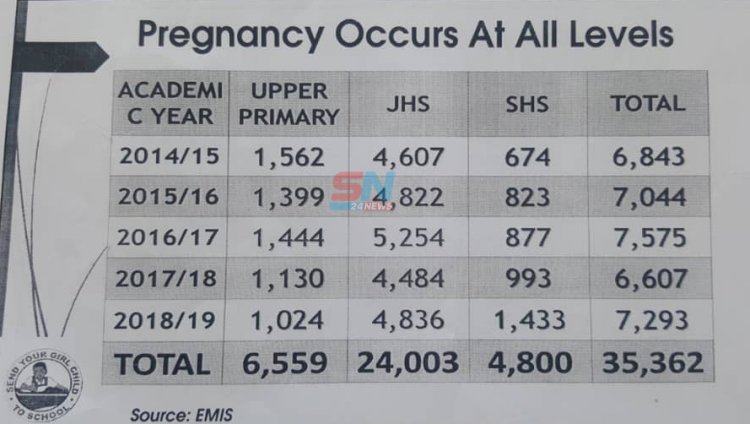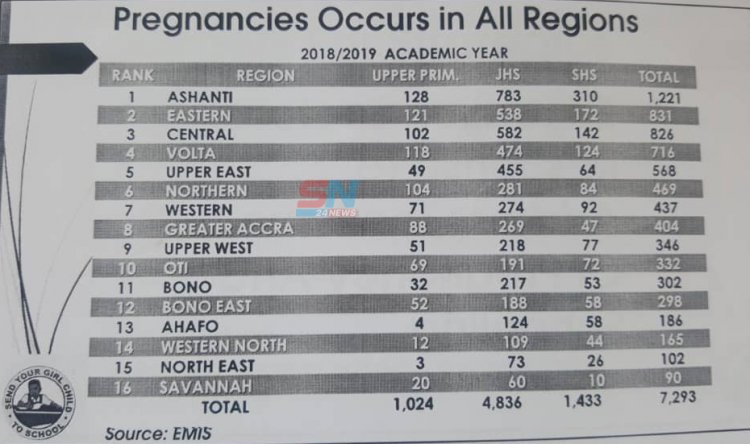Teenage Pregnancy; the female Education Menace
The situation of girls dropping out of school especially during the Junior High School level as a result of teenage pregnancy is becoming rampant in Ghana and failure to address it will have a vastly negative effect on the country in the future.

Teenage pregnancy has become the new menace distracting girl child education in Ghana, as the rate at which young brainy girls drop out of school is becoming alarming which delays the development of communities through poverty empowerment.
The situation keeps increasing every academic year in the Upper Primary, Junior and Senior High Schools and the numbers seem not calming regardless of the education on the effects of the challenge.
Although young girls motivated by noble female personalities with zeal brace up to fight for their future yet the influence of key family factors, peer pressure, social media addictions and many others on their lives sometimes leave them with no option but to be involved in sexual acts as a rewarding gateway to their future.
Parents are able to guide their wards during their time in the Upper Primary, but where the care is needed most, i.e. In the Junior High Schools, they recklessly desert them forgetting that young girls during such age go through body changes which makes them vulnerable to any sexual practice.
Research gathered by the Education Management Information System (EMIS) in Ghana reveals that girls fall as victims of teenage pregnancy during their Junior High School age, and the least number of cases is recorded at the Senior High School. For instance, in the 2014/15 Academic year, a total number of 6,843 cases of teenage pregnancy was recorded at all levels on the Educational ladder.
1,562 girls were teenage pregnancy victims in the Upper Primary level. The numbers rose to 4,607 in the Junior High School academic year with 4,607 and in the Senior High School level, there was a total decrease of figures to 674.

The table shows a repetition of the above track, with the SHS always recording minimum figures. The reason is ascribed to knowledge, that is, girls at the Senior High School level gain much experience either to protect themselves from getting pregnant or are too ambitious to finish the ladder and position themselves well in the country to affect their community.
They get much occupied in things that will have their names attached than spending time with boys and men whose future cannot be guaranteed. Others on the other hand during the Junior High School level after the escape of pregnancies go through series of broken heartedness in relationships which quenches their interest in guys and rather, makes education a key priority to revenge the wasteful years.
The use of contraceptives at such a stage becomes flourishing and parents also encourage their wards to embrace the wearing of implants to prevent any dishonour towards themselves and education.
As revealed by the Girl child Coordinator in the Atwima Nwabiagya North District, most of the young females in the Assembly are wearing the implants, a decision taken by parents which also has negative implications in the future.

The menace is very effective in Ashanti with the 2018/19 academic year ranking the region number one in cases of teenage pregnancy. Out of the 7,293 pregnancies occurring in that year, 1,221 female learners were involved in teenage pregnancy in the Ashanti Region only.
The Upper Primary had 128 cases and the JHS shot to 783. The numbers declined to 310 during SHS, following suit of the previous mode. The Eastern Region accompanied with 831 before Central Region. The Greater Accra was eighth with 404 and Savannah has the least – 90.
The chart shows why most women from the Ashanti Region are not able to rise to the occasion of country administration and the major factor in their failure to climb the educational ladder is as a result of teenage pregnancy.
Should the numbers continue to follow suit, poverty eradication will be tough in Ghana and the educational ladder will be threatened since parents involved wouldn't have the funds to take their wards to school and their mother's mistake will be their new embraced approach.




































